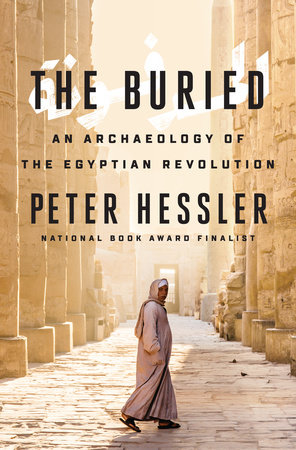The New Yorker staff writer recounts five years of work as a correspondent in Egypt, where he witnessed the events of the so-called Cairo Spring. The great struggle of Egypt, suggests Hessler (Strange Stones: Dispatches from East and West, 2013, etc.) over the course of this long but economically written study, is both to forge a national identity and to enter history—the history that one can record accurately, that is. On the second matter, the author looks deeply into the Egyptian past and the pharaonic notion that the past is never even past but instead "exists forever in the present." It would also seem to be open to interpretation; Hessler opened a textbook to find that, as if by miracle, Egypt won the October War of 1973, which "actually ended with the Egyptian Third Army surrounded by the Israelis." So it is that Egyptian museums display but don't really interpret the past, even as that textbook noted, in passing, "Whoever has no history has no present." All of these ponderings have bearing on what Hessler witnesses on the streets of Cairo and surrounding small towns as Islamists battle modernist reformers and members of the old post-Nasserite regime, each with a different view of what it means to be an Egyptian—in some instances of which former "fellaheen," or "peasants," actually claim descent not from the pharaohs but instead from the Saudis across the Red Sea. Hessler's interlocutors are a fascinating lot, including a garbage collector who ports away his own empty bottles of beer after visits, knowing he's going to have to do so anyway, and an Arabic-language instructor with a subtle command of politics. In the chaos of the revolution, some of those interlocutors are forced to leave, finding exile in faraway lands. Nuanced and deeply intelligent—a view of Egyptian politics that sometimes seems to look at everything but and that opens onto an endlessly complex place and people. Reviewed April 1, 2019
The Buried: An Archaeology of the Egyptian Revolution by Peter Hessler will be published on May 7th by Penguin Press in North America, Profile Books in the United Kingdom, and Text Publishing in Australia and New Zealand.
Other praise and reviews: Kirkus, Paul Theroux

